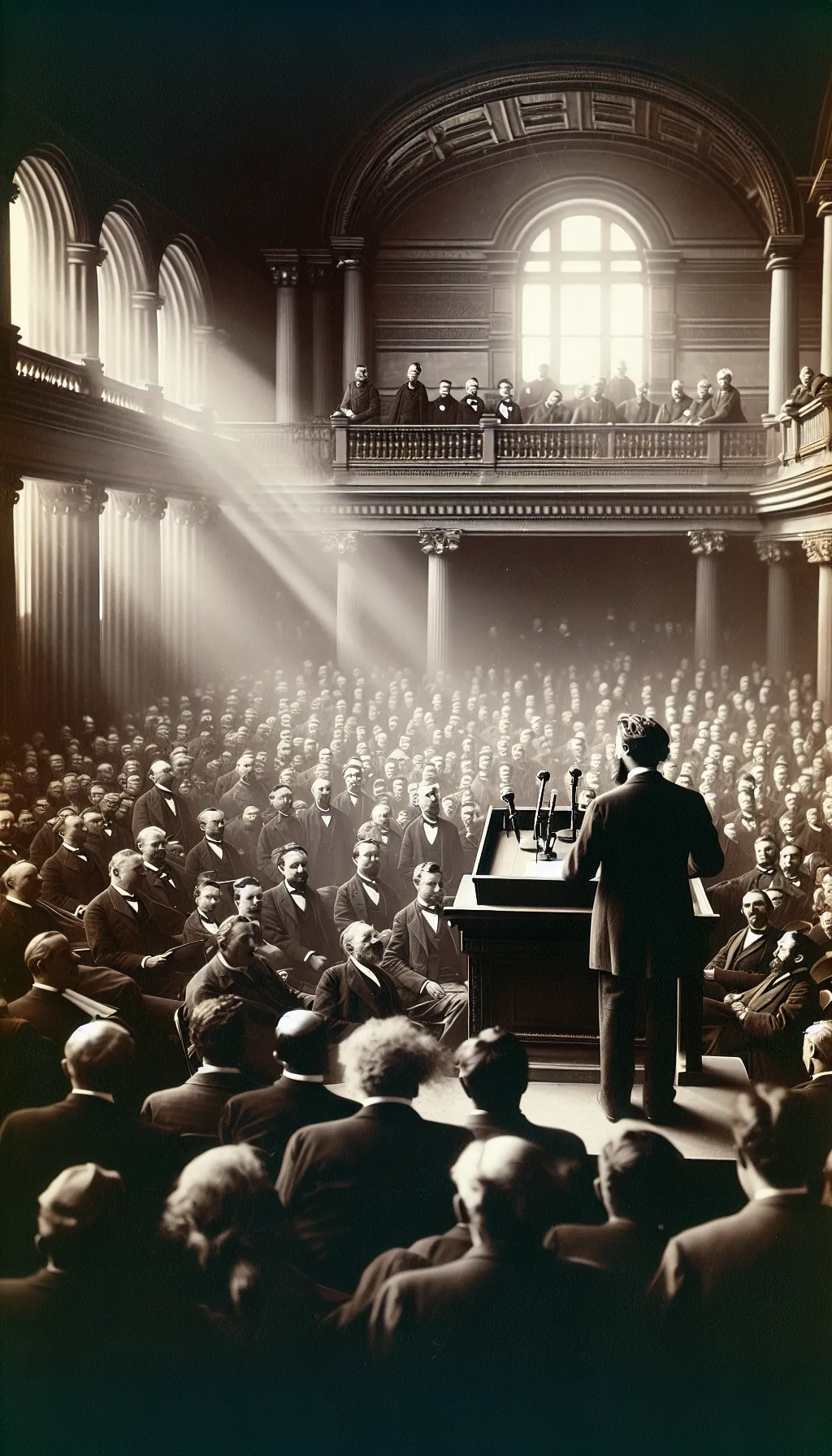United States – A Nation on the Brink: Lincoln's House Divided Speech of 1858
TLDR;
- Event: Abraham Lincoln delivered his famous ‘House Divided’ speech on June 16, 1858, in Springfield, Illinois, accepting the Illinois Republican Party’s nomination for the U.S. Senate.
- Message: Lincoln warned that the U.S. could not endure permanently half slave and half free, highlighting the moral and political crisis over slavery.
- Impact: The speech marked a turning point in Lincoln’s career and the national debate on slavery, setting the stage for his presidential campaign and the Civil War.
- Legacy: The ‘House Divided’ speech remains a powerful symbol of the struggle for unity and freedom in American history.
–
Story
The air was thick with anticipation in Springfield, Illinois, on June 16, 1858. The crowd gathered at the Illinois State Capitol, eyes fixed on the tall, gaunt figure of Abraham Lincoln as he stepped forward to address the assembly. His voice, steady and resolute, cut through the tension: ‘A house divided against itself cannot stand.’

Lincoln’s words echoed through the hall, a stark warning to a nation teetering on the edge of chaos. The United States was embroiled in a fierce debate over slavery, a moral and political issue that threatened to tear the country apart. As he accepted the Illinois Republican Party’s nomination for the U.S. Senate, Lincoln seized the moment to deliver a speech that would resonate through history.
He painted a vivid picture of a nation at a crossroads, where the expansion of slavery into new territories posed a dire threat to the Union. ‘I believe this government cannot endure, permanently half slave and half free,’ he declared, challenging the status quo and calling for a decisive stand against the spread of slavery.
This speech marked a turning point, not just in Lincoln’s political career, but in the nation’s history. While initially dividing Republicans with its radicalism, its full impact grew over time, especially after Lincoln’s debates with Douglas and his eventual presidential campaign. Lincoln’s unwavering stance against slavery positioned him as a leading voice in the fight for freedom and equality, though it was part of a broader escalation toward the Civil War, not the sole cause.
As the echoes of his speech faded, the nation was left to grapple with the profound implications of his words. The ‘House Divided’ speech was a clarion call to action, urging Americans to confront the moral crisis at the heart of their society.
–
| Would a different stance on slavery have changed the course of American history? |